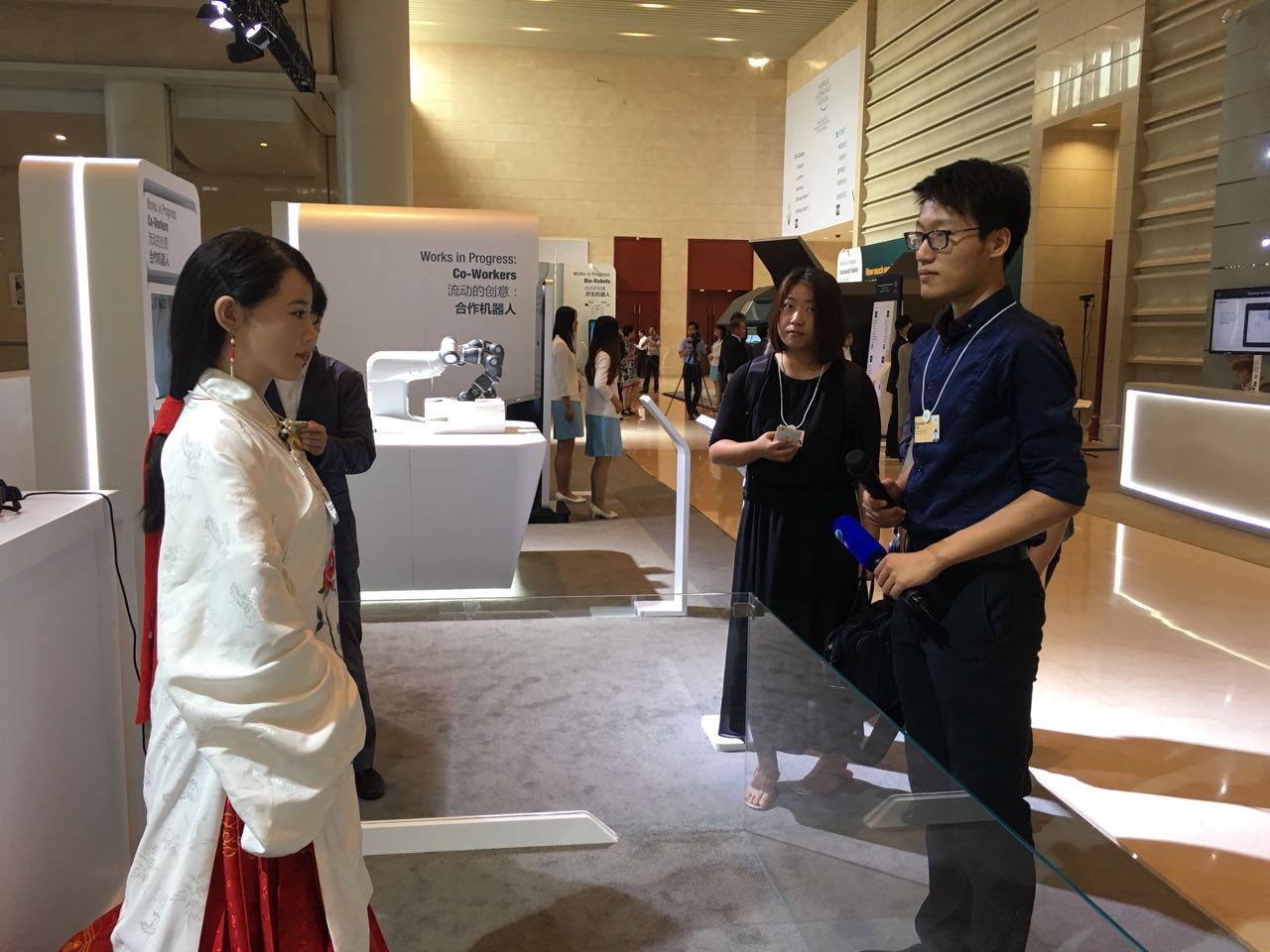Industry 4.0 revolutionizes manufacturing, services

Jiajia the robot (left) interacts with attendees to the World Economic Forum (WEF) Annual Meeting of New Champions, also known as the Summer Davos, on June 26 in Tianjin. Developed by the University of Science and Technology of China in Hefei, Anhui Province, the life-like android may serve the elderly in the future. Scholars said at the forum that the rapid advances in robotics are set to revolutionize the way goods are manufactured and services are provided.
Industry 4.0 has completely changed the way goods are manufactured and services are provided, said attendees to the recent World Economic Forum (WEF) Annual Meeting of New Champions.
The meeting, also known as the Summer Davos, was held from June 26 to 28 in Tianjin. It gathered more than 1,700 politicians, businessmen and experts from more than 90 countries.
Prior to the meeting, WEF founder and Executive Chairman Klaus Schwab published a signed piece titled “The Fourth Industrial Revolution: What It Means and How to Respond,” in which he said: “We stand on the brink of a technological revolution that will fundamentally alter the way we live, work and relate to one another. In its scale, scope and complexity, the transformation will be unlike anything humankind has experienced before.”
Schwab’s opinion was echoed by Liu Xiahui, a research fellow at the Institute of Economics at the Chinese Academy of Social Sciences, who noted that Industry 4.0 is changing our lives in every way. Technological changes have transformed ideas, lifestyles and models of governance, while constant innovation has spurred the evolution of production and consumption, Liu said.
Liu said Industry 4.0 has three dimensions: The first is research and development, which is crucial to maintaining competitiveness and should be prioritized to guarantee product quality. The next is processing and manufacturing through standardized procedures, professional management and large-scale production. The last is consumer services, including e-commerce, sales channels, distribution and logistics, for which a sound operational network and mechanism is needed.
Wang Fei, a professor of international economics and trade at the University of International Business and Economics, shed light on cutting-edge technologies, “The rapid advances in artificial intelligence, big data and robotics that we often talk about are set to revolutionize the way manufacturers produce goods and provide services.”
Given the visible influence of technological progress on consumers in China, Wang called for a special focus on ways in which technologies like artificial intelligence and big data can revolutionize manufacturing and distribution to reduce costs, open new markets and fuel economic growth.
He also identified the underlying factors and trends of economic development, saying that services will account for a growing share of the economy as the country optimizes its economic structure by shifting the emphasis away from heavy industry.
However, that does not mean heavy industry and manufacturing are insignificant. The modern service industry should primarily serve production and manufacturing, so its development should go hand in hand with that of manufacturing. Only when the two are integrated can value be created and the economic structure improved, Wang said.
Chen Bin, a professor from the School of Economics at the Central University of Finance and Economics, agreed with Wang. “The growth of developed countries is inseparable from a well-rounded industrial system, since reasonable planning of the industrial structure, optimization of resource allocation and innovation are crucial to the prosperity of the national economy,” he said.
The industrial sector is complementary to manufacturing and services, and will ensure them rather broad space for development, Chen said.
Tang Hongli and Duan Danjie are reporters at the Chinese Social Sciences Today.

 PRINT
PRINT CLOSE
CLOSE